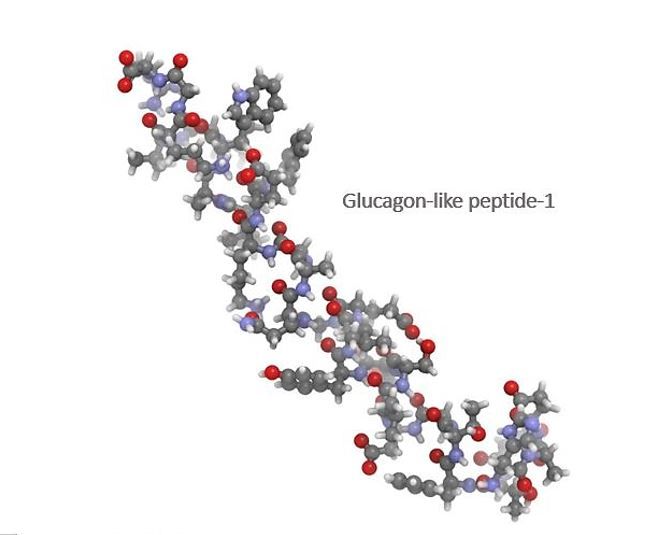- Clinical Technology
- Adult Immunization
- Hepatology
- Pediatric Immunization
- Screening
- Psychiatry
- Allergy
- Women's Health
- Cardiology
- Pediatrics
- Dermatology
- Endocrinology
- Pain Management
- Gastroenterology
- Infectious Disease
- Obesity Medicine
- Rheumatology
- Nephrology
- Neurology
- Pulmonology
Ascletis Enters Small Molecule Oral GLP-1 RA Category with Positive Phase 1a Findings in Obesity
The properties of ASC30 may allow the small molecule GLP-1 RA to be formulated as a monthly injection and daily oral tablet, Ascletis said.
China-based Ascletis Pharma Inc has announced promising topline results from a US-based Phase Ia single ascending dose (SAD) study of its investigational small molecule GLP-1 receptor agonist (GLP-1RA), ASC30, being studied for the treatment of obesity. The trial evaluated the pharmacokinetic (PK) profile, safety, and tolerability of ASC30 oral tablets across 5 dose levels in 40 patients with obesity (body mass index [BMI], 30-40 kg/m2).
©molekuule.be/stock.adobe.com

ASC30 oral tablets demonstrated dose-proportional PK properties and a long half-life (t½) of up to 60 hours, supporting once-daily or less frequent dosing, according to a news release from Ascletis. Notably, the drug's PK profile remained consistent regardless of food intake, indicating potential convenience for patients without dietary restrictions.
Cross-trial comparisons suggest ASC30 offers superior PK characteristics, including longer t½ and higher drug exposure and area under the curve, compared to other small molecule GLP-1RA in development. Taken together, these characteristics suggest the potential for ASC30 to be a “best-in-class small molecule treatment for obesity,” Ascletis stated.
“We are excited that the results from our Phase Ia SAD trial of ASC30 oral tablet, once daily in patients with obesity demonstrated potential best-in-class characteristics, Jinzi Jason Wu, PhD, Ascletis founder, chairman, and CEO, stated in the press announcement. “With superior PK properties observed in [this] study, we are looking forward to sharing efficacy, safety, and PK data from phase Ib 28-day multiple ascending dose (MAD) trial…by the end of March this year. As one small molecule, ASC30 potentially offers both once-daily oral and once-monthly subcutaneous injection dosing options.”
Phase 1a Clinical Trial
The phase 1a study included 5 cohorts (N = 6) each receiving single oral doses of ASC30 (2 mg, 5 mg, 10 mg, 20 mg, and 40 mg) and placebo under fasting conditions. The highest dose (40 mg) was also evaluated under fed conditions. Ascletis reported favorable safety and tolerability, with all treatment-emergent adverse events (TEAEs) classified as mild or moderate (grade 1 or 2). Most AEs were gastrointestinal (GI)-related, with incidence increasing at higher doses. No serious AEs or grade 3 or higher AEs were reported, and liver enzyme levels, including alanine aminotransferase and aspartate aminotransferase, remained within normal ranges.
In terms of GI-related AEs, the placebo group reported a 10% incidence of treatment-emergent GI events, while rates ranged from 0% in the 2 mg cohort to 100% in the 40 mg cohort. The most common of these, observed a higher doses, included nausea (up to 100%) and vomiting (up to 83.3%). These findings are consistent with or better than the safety profiles reported for other small molecule GLP-1RA agonists.
ASC30 was developed by Ascletis as a GLP-1R-biased small molecule agonist without β-arrestin recruitment, according to the company. The molecule’ s “differentiated properties” enable both once-monthly subcutaneous injection and once-daily oral tablet administration, Ascletis said. In vitro evaluation demonstrated ASC30’s potency to be 2- to 3-fold higher when compared directly with orforglipron,2 a competing GLP-1RA agonist. The molecule was also shown to stimulate statistically significantly greater insulin secretion compared to orforglipron in non-human primate models.
The ongoing Phase Ib randomized, double-blind, placebo-controlled multiple ascending dose (MAD) study, which includes weekly dose titrations over 28 days, aims to further assess safety, PK, and efficacy in patients with obesity. The study consists of three cohorts receiving escalating doses of ASC30 or placebo, and topline results, including weight loss data, are anticipated by late March 2025.
